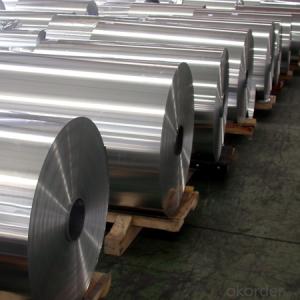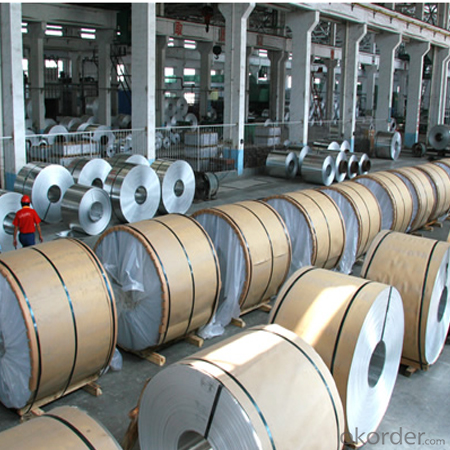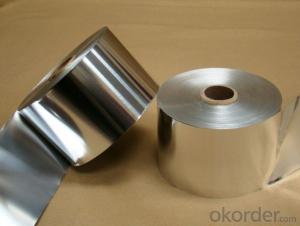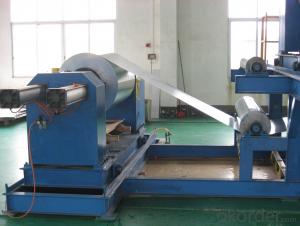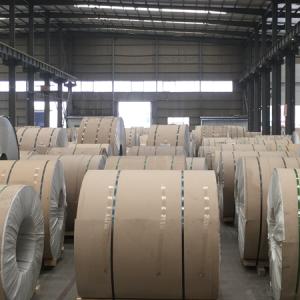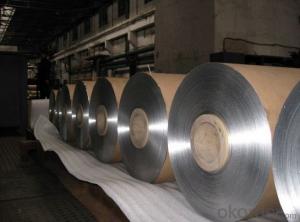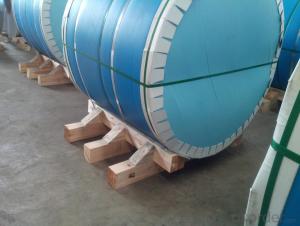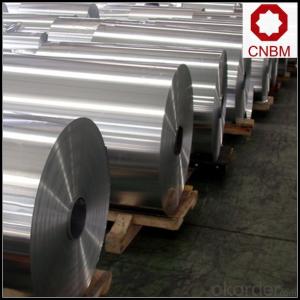5052 Marine Grade Aluminum Coil Clifton NJ Ship Plate
- Loading Port:
- Shanghai
- Payment Terms:
- TT OR LC
- Min Order Qty:
- 5 m.t.
- Supply Capability:
- 6000 m.t./month
OKorder Service Pledge
Quality Product, Order Online Tracking, Timely Delivery
OKorder Financial Service
Credit Rating, Credit Services, Credit Purchasing
You Might Also Like
Specification
Grade:
1000 Series,5000 Series,7000 Series,3000 Series
Surface Treatment:
Coated,Mill Finish,Color Coated,Enameled Wire
Shape:
Angle,Flat,Rectangular
Temper:
O-H112,Soft,Half Hard,Hard
Application:
Decorations,Door & Window,Transportation Tools,Kitchen Use
Technique:
DC/CC
Thickness:
0.05-4.0mm
Width:
900--1500mm
Outer Diameter:
450-600
Net Weight (kg):
2.5 ton
Packaging:
Wooden pallets
5052 Marine Grade Aluminium Alloy Sheet Ship Plate
Packaging & Delivery
Product Specification | |
Grade | 1000 Series: 1050 1060 1100 3000 Series: 3003 3004 3105 5000 Series: 5052 5605,5083 6000 Series: 6061 6063 8000 Series: 8011 8021 8079 |
Thickness | 0.20-8.00mm |
Width | 2400mm max. |
Grade | 1000,3000,5000,6000,8000series |
Coil ID | 75mm, 150mm, 200mm, 300mm, 400mm, 508mm or negotiable |
Coil weight | 1000-5000kgs |
Coil OD | 1700mm max. |
Temper | O, H12, H14, H16, H111, H22 ,H24, H26, H28,T4, T6,etc. |
| Temper | |
| F | processing state |
| H | strain hardening state |
| O | annealing |
| T | heat treatment state |
| H112 | pure state of strain hardening, adjustment has been made to degree of strain hardening and annealing |
| T4 | solid solution treatment and natural efficiency to achieve sufficient stability condition |
| T5 | artificial aging condition of the reentry after high temperature thermal cooling |
| T6 | artificial aging state after solid solution treatment |
Chemical Composition | |||||||||
| Grade | Si | Fe | Cu | Mn | Mg | Cr | Ni | Zn | Al |
| 1050 | 0.25 | 0.4 | 0.05 | 0.05 | 0.05 | - | - | 0.05 | 99.5 |
| 1060 | 0.25 | 0.35 | 0.05 | 0.03 | 0.03 | - | - | 0.05 | 99.6 |
| 1070 | 0.2 | 0.25 | 0.04 | 0.03 | 0.03 | - | - | 0.04 | 99.7 |
| 1100 | Si+Fe:0.95 | 0.05-0.2 | 0.05 | - | - | 0.1 | - | 99 | |
| 1200 | Si+Fe:1.00 | 0.05 | 0.05 | - | - | 0.1 | 0.05 | 99 | |
| 1235 | Si+Fe:0.65 | 0.05 | 0.05 | 0.05 | - | 0.1 | 0.06 | 99.35 | |
| 3003 | 0.6 | 0.7 | 0.05-0.2 | 1.0-1.5 | - | - | - | 0.1 | remains |
| 3004 | 0.3 | 0.7 | 0.25 | 1.0-1.5 | 0.8-1.3 | - | - | 0.25 | remains |
| 3005 | 0.6 | 0.7 | 0.25 | 1.0-1.5 | 0.20-0.6 | 0.1 | - | 0.25 | remains |
| 3105 | 0.6 | 0.7 | 0.3 | 0.30-0.8 | 0.20-0.8 | 0.2 | - | 0.4 | remains |
| 3A21 | 0.6 | 0.7 | 0.2 | 1.0-1.6 | 0.05 | - | - | 0.1 | remains |
| 5005 | 0.3 | 0.7 | 0.2 | 0.2 | 0.50-1.1 | 0.1 | - | 0.25 | remains |
| 5052 | 0.25 | 0.4 | 0.1 | 0.1 | 2.2-2.8 | 0.15-0.35 | - | 0.1 | remains |
| 5083 | 0.4 | 0.4 | 0.1 | 0.40-1.0 | 4.0-4.9 | 0.05-0.25 | - | 0.25 | remains |
| 5154 | 0.25 | 0.4 | 0.1 | 0.1 | 3.1-3.9 | 0.15-0.35 | - | 0.2 | remains |
| 5182 | 0.2 | 0.35 | 0.15 | 0.20-0.50 | 4.0-5.0 | 0.1 | - | 0.25 | remains |
| 5251 | 0.4 | 0.5 | 0.15 | 0.1-0.5 | 1.7-2.4 | 0.15 | - | 0.15 | remains |
| 5754 | 0.4 | 0.4 | 0.1 | 0.5 | 2.6-3.6 | 0.3 | - | 0.2 | remains |
| 6061 | 0.40-0.8 | 0.7 | 0.15-0.40 | 0.15 | 0.8-1.2 | 0.04-0.35 | - | 0.25 | remains |
| 6063 | 0.20-0.6 | 0.35 | 0.1 | 0.1 | 0.45-0.9 | 0.1 | - | 0.1 | remains |
| 6082 | 0.7-1.3 | 0.5 | 0.1 | 0.40-1.0 | 0.6-1.2 | 0.25 | - | 0.2 | remains |
| 6A02 | 0.50-1.2 | 0.5 | 0.20-0.6 | Or Cr0.15-0.35 | 0.45-0.9 | - | - | 0.2 | remains |
| 8011 | 0.50-0.9 | 0.6-1.0 | 0.1 | 0.2 | 0.05 | 0.05 | - | 0.1 | remains |
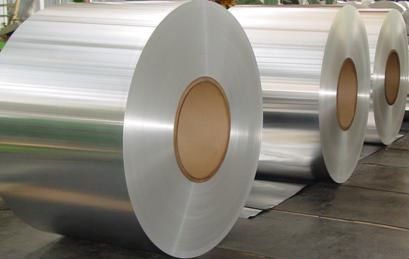
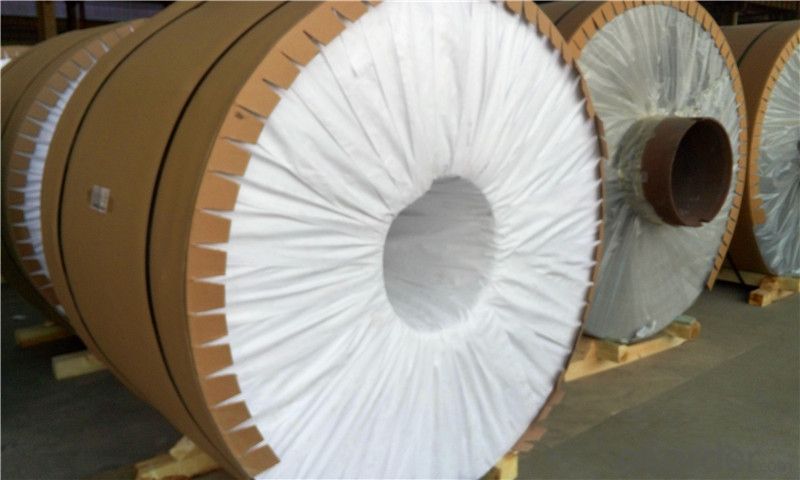
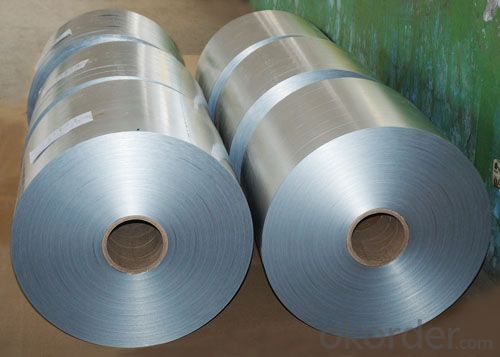
- Q: How do aluminum coils contribute to the thermal conductivity of products?
- Aluminum coils play a vital role in enhancing the thermal conductivity of various products, thanks to their exceptional thermal properties. These coils, crafted from aluminum, excel at transferring heat with great efficiency. Compared to common metals like steel or copper, aluminum boasts significantly higher thermal conductivity. Consequently, when incorporated into products, aluminum coils swiftly and effectively move heat from one area to another. For instance, in air conditioning units, aluminum coils find frequent use in HVAC systems. As refrigerant courses through the coils, the aluminum material rapidly absorbs heat from the surrounding air. This process facilitates efficient cooling, swiftly removing heat from the air and expelling it, thereby creating a more comfortable indoor environment. Likewise, in heat exchangers, aluminum coils aid in the transfer of heat between two fluids or gases. The aluminum's strong thermal conductivity ensures efficient heat exchange, guaranteeing the desired temperature is reached promptly. Additionally, the lightweight nature of aluminum coils makes them easier to handle and install in a range of products. This characteristic proves particularly advantageous in industries such as automotive, aerospace, and electronics, where weight reduction is critical. In conclusion, aluminum coils make a significant contribution to the thermal conductivity of products by efficiently transferring heat, thanks to their impressive thermal properties. Furthermore, their lightweight nature enhances their versatility and practicality across multiple industries.
- Q: Can aluminum coils be used in the production of aluminum wire?
- Aluminum wire production can utilize aluminum coils as a starting material. To create aluminum wire, aluminum rods or bars are drawn or extruded through dies to decrease their diameter and increase their length. Aluminum coils, which are continuous rolls of aluminum sheet or strip, can serve as the initial material for this procedure. Initially, the aluminum coils are unwound and introduced into the wire production line for further processing. They undergo annealing, cleaning, and are then fed through a series of drawing dies to reduce their diameter and increase their length until the desired wire gauge is achieved. Consequently, aluminum coils prove to be an efficient and cost-effective starting material for aluminum wire production.
- Q: I want to paint my cars rims and grill metallic pink. But supposedly paint doesn't stick well to aluminum. What can I do to make it stick better and not chip?
- The best way is to have the pieces powder coated. Its a little expensive but the color and luster are outstanding and will last forever.
- Q: Can aluminum coils be used in marine environments?
- Yes, aluminum coils can be used in marine environments. Aluminum is a popular choice for marine applications due to its excellent corrosion resistance. It forms a protective oxide layer on its surface when exposed to air, which helps prevent further corrosion. This oxide layer is particularly effective in marine environments where there is exposure to saltwater or high levels of humidity. Additionally, aluminum is lightweight, making it easier to handle and install in marine applications. It is also highly durable and can withstand harsh conditions, including exposure to UV rays and extreme temperatures. Therefore, aluminum coils are commonly used in various marine applications such as boat hulls, shipbuilding, offshore structures, and other marine equipment.
- Q: Is it possible to join steel coils using arc welding or gas welding techniques?
- <p>Yes, steel coils can be welded together using both arc welding and gas welding methods. Arc welding, specifically processes like Shielded Metal Arc Welding (SMAW) and Gas Metal Arc Welding (GMAW), is commonly used for joining steel due to its strength and versatility. Gas welding, which uses a fuel gas and an oxygen mixture to produce a flame, is also suitable for steel welding, although it may be less common in industrial settings due to the higher heat input and potential for distortion. Proper techniques and equipment are essential to ensure a strong, durable weld and to avoid defects such as cracking or warping.</p>
- Q: How do aluminum coils resist corrosion?
- Due to their unique chemical composition and the presence of a protective oxide layer, aluminum coils possess the ability to withstand corrosion. Despite being a highly reactive metal, aluminum develops a thin layer of aluminum oxide upon exposure to air. This oxide layer serves as a safeguard, preventing any further interaction with the surrounding environment. Remarkably, this protective layer possesses self-repairing capabilities and continues to form even in the event of damage, guaranteeing long-lasting defense against corrosion. In addition, aluminum coils can receive further safeguarding through the application of coatings or treatments that enhance their resistance to corrosion. These coatings function as an additional defensive layer, shielding the coils from potential corrosive substances. In summary, the combination of the inherent oxide layer and additional coatings ensures that aluminum coils exhibit exceptional resistance to corrosion, thus guaranteeing their durability and longevity across various applications.
- Q: Who knows about how much money can be sold in a three metre high similar aluminum door?
- How wide is it, mainly to see the door you have multiple components, scrap is generally about 10 yuan a kilogram!
- Q: Are aluminum coils resistant to vibration?
- Yes, aluminum coils are generally resistant to vibration. Due to their inherent strength and elasticity, aluminum coils can withstand vibrations and oscillations without significant deformation or damage. This property makes them suitable for various applications that involve mechanical movement or exposure to vibrations.
- Q: What is the typical conductivity of aluminum coils?
- Aluminum coils exhibit a relatively high typical conductivity, with a range of values between 34 and 38 million Siemens per meter (MS/m) at room temperature. Renowned for its exceptional electrical conductivity, aluminum finds extensive application in diverse electrical uses such as power transmission lines, electrical conductors, and coils. This notable conductivity enables the smooth and efficient flow of electric current through aluminum coils, rendering them apt for dependable and efficient electricity conduction.
- Q: What are the common quality control measures for aluminum coil manufacturing?
- Some common quality control measures for aluminum coil manufacturing include visual inspections to check for any defects or imperfections in the coils, dimensional measurements to ensure they meet the required specifications, chemical analysis to verify the composition and purity of the aluminum, mechanical testing to assess the strength and durability of the coils, and surface finish evaluations to ensure a smooth and uniform appearance. Additionally, manufacturers may implement statistical process control techniques to monitor and control the production process to consistently produce high-quality aluminum coils.
Send your message to us
5052 Marine Grade Aluminum Coil Clifton NJ Ship Plate
- Loading Port:
- Shanghai
- Payment Terms:
- TT OR LC
- Min Order Qty:
- 5 m.t.
- Supply Capability:
- 6000 m.t./month
OKorder Service Pledge
Quality Product, Order Online Tracking, Timely Delivery
OKorder Financial Service
Credit Rating, Credit Services, Credit Purchasing
Similar products
Hot products
Hot Searches
Related keywords
